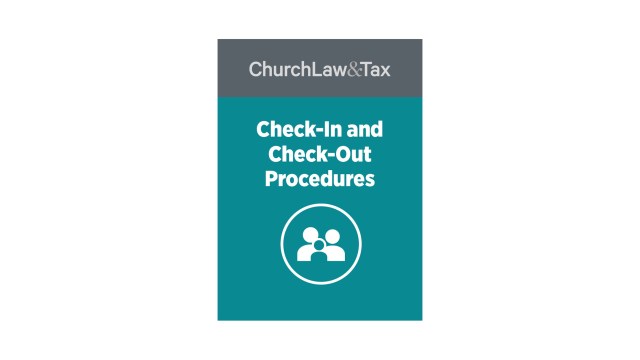Can a member of an unincorporated church sue the church for damages sustained because of the negligence of another church member? No, concluded the Indiana Supreme Court.
The member had been seriously injured while repairing a church roof when he fell off of a ladder that had been negligently positioned by another member. The injured member sued the church for damages, and the church defended itself by arguing that an unincorporated church cannot be sued by one member for injuries resulting from the negligence of another member.
The state supreme court agreed with the church's position, observing that the rule "followed by the majority of jurisdictions is that a member of an unincorporated association injured due to the conduct of another member cannot sue the association." This rule, noted the court, is based on the principle that "the members of an unincorporated association are engaged in joint enterprise. The negligence of each member in the prosecution of that enterprise is imputable to each and every other member so that the member who has suffered damages through the tortious conduct of another member of the association may not recover from the association for such damage. It would be akin to the person suing himself as each member becomes both a principal and an agent as to all other members for the actions of the group itself."
The court acknowledged that a few states had changed this rule with respect to "large unincorporated associations … having a hierarchy of structure that drastically changes the relationship of members to the association and the control that a member has in its affairs." However, such an exception to the general rule clearly did not apply to a local church. Further, the court acknowledged that the state legislature had enacted a law providing that unincorporated associations could be sued directly.
But this law, concluded the court, "did not change the general rule in Indiana, still adhered to by most jurisdictions, that members of an unincorporated association cannot sue the association for tortious acts of one or more of its members." As a result of this decision, members of unincorporated churches in Indiana cannot sue their church for injuries sustained because of the negligence of other members. In many cases, they will be left without any legal remedy at all.
This certainly is a matter that should be considered seriously by any church wishing to remain unincorporated. Such churches should apprise their members that if they are injured during any church activity because of the actions of another member, they probably will have no legal right to compensation or damages from the church or the other members.
Calvary Baptist Church v. Joseph, 522 N.E.2d 371 (Ind. 1988)
